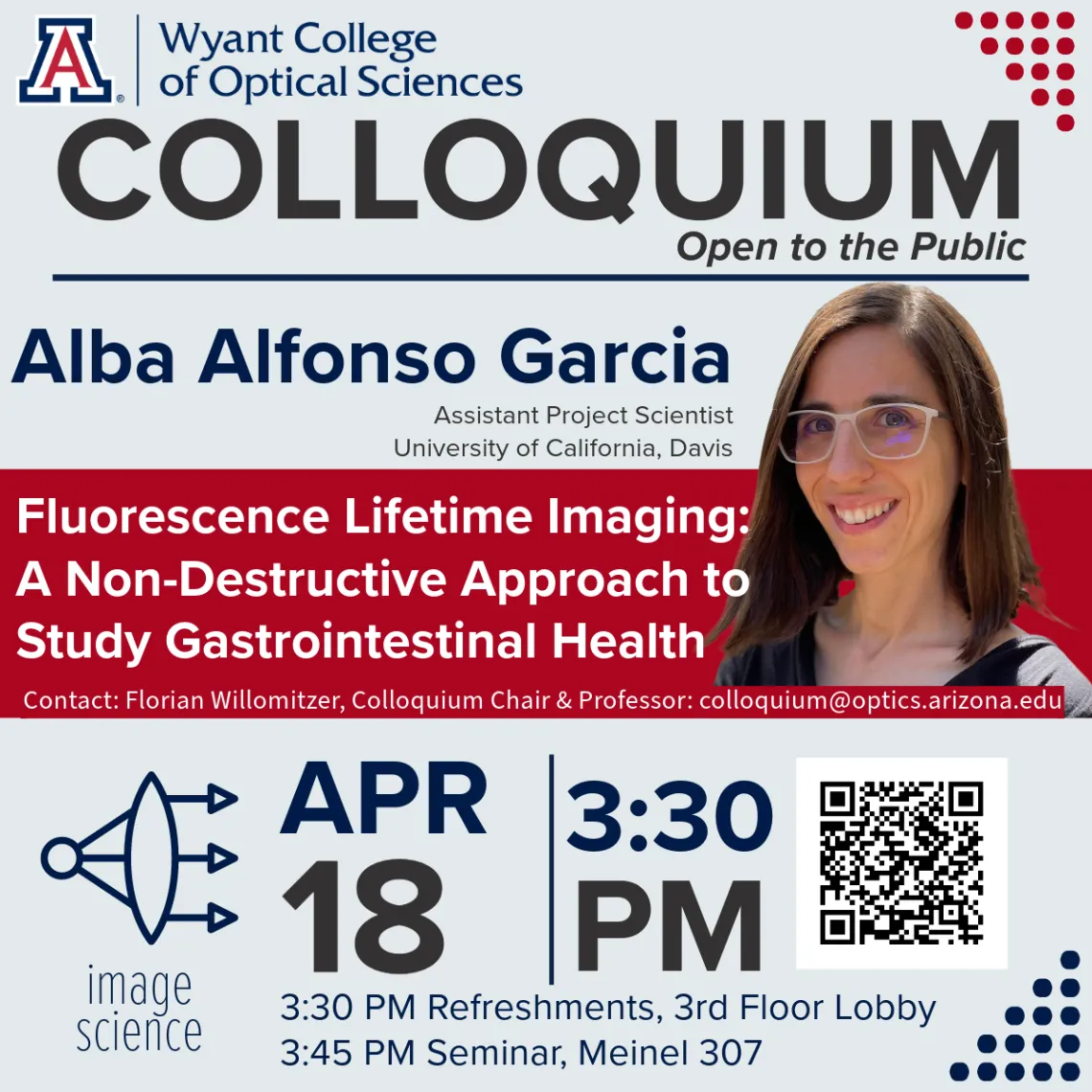
When
Where
Title
Fluorescence Lifetime Imaging: A Non-Destructive Approach to Study Gastrointestinal Health
Abstract
Early diagnosis of gastrointestinal (GI) tract inflammation is critical for timely medical intervention and improved patient prognosis. This study evaluated the sensitivity of label-free fluorescence lifetime imaging (FLIm) as a novel method for detecting low-grade GI inflammation. FLIm captures changes in the tissue microenvironment altered under inflammatory conditions. We have developed a FLIm probe for in vivo mouse colon imaging that consists of a low profile (0.92 mm) imaging catheter with a side-viewing free-form micro-optic at the distal end. It is built for high signal collection, reliability, and long-term stability, with atraumatic insertion. The system includes a translational stage and a rotary collimator, enabling helical scanning of the entire colon (60 – 80 mm). The portable cart design facilitates use in animal surgical rooms.
Using this FLIm probe, an experimental model of low-grade inflammation induced by streptomycin (20mg single dose) was imaged. The fluorescence lifetime at 470 nm and 540 nm exhibited a significant decrease of 0.3 ns after treatment, indicating a glycolytic shift in the inflamed tissue metabolism. The metabolic switch was validated by the presence of oxygen-respiring bacterial and altered energy metabolites (e.g., ATP, lactate) in the inflamed colons. We further explored a potential validation of the FLIm maps through spatial transcriptomics, offering insight into specific sites of inflammatory reaction in the colon.
These findings hint at the quantifiable detection of inflammatory changes in mucosal tissue using FLIm, providing a foundation for further investigations into its sensitivity to colon epithelial metabolism and its potential for monitoring inflammation in live tissue.
Bio
Dr. Alba Alfonso-Garcia is an Assistant Project Scientist in the Department of Biomedical Engineering at University of California, Davis. She received her Ph.D. in Biomedical Engineering from University of California, Irvine before joining UC Davis for her postdoctoral training. Dr. Alfonso-Garcia’s research in the field of biophotonics focuses on developing label-free spectroscopy and imaging solutions to address unmet needs in biomedical research and clinical practice including disease detection, therapy monitoring, and surgical guidance. She currently investigates live tissue fluorescence signatures to identify intrinsic biomarkers of brain tumor and gastrointestinal disease. She has implemented a fiber-based autofluorescence lifetime imaging system for detecting and monitoring intestinal inflammation in living mice, with the goal to develop a research tool for longitudinal small animal studies. Dr. Alfonso-Garcia is a member of the Optica technical group for tissue imaging and spectroscopy and the SPIE Group for photonic approaches for managing infections and inflammatory diseases.
Can't Join Us In Person?
Register for the Zoom Webinar!
Subscribe to Upcoming Colloquium Announcements
Visit our website for future lecture dates and speaker information
